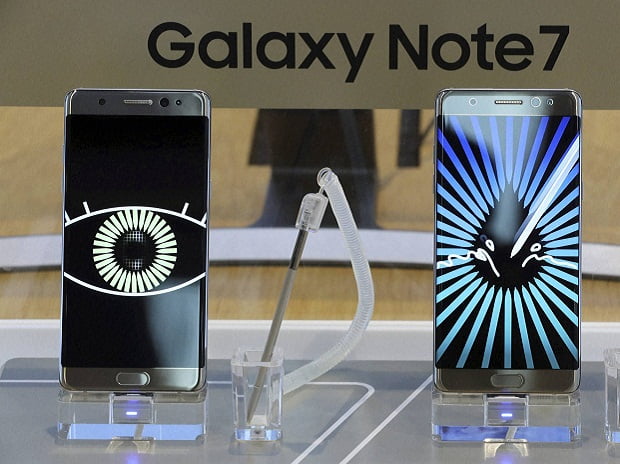
Electronics major Samsung has lately been dealing with one of its deepest crises, with the South Korean company having to suspend the production and sale of its flagship Galaxy Note 7 amid reports of these devices catching fire. Initially, the company tried to douse some of the fire it was drawing by replacing the handsets. But the move failed miserably as there were similar complaints from the users who had received replacements.
Last week, Samsung said the crisis would cost it over $3 billion in lost profits over the next two quarters. Some analysts pegged Samsung’s likely revenue loss at as high as $17 billion, considering the company expected to sell 19 million devices.
How is Samsung placed in India?
According to GFK, Samsung India had a 48.7 per cent share of India’s smartphone market by value in August 2016. Analyst firm CyberMedia Research (CMR) saidSamsung India might lose up to Rs 6,500 crore in sales this year following the Note7 recall. Samsung, however, rubbished the reports, saying these were not based on empirical facts.
According to the GFK report, smartphone shipments in India hit a record 35 million units in the September quarter. While Chinese brands continued to make inroads, to control 32 per cent of thesmartphone market – compared with 27 per cent in the previous quarter – leaders Samsung and Micromax saw their share reduced to 21.6per cent and 9.8per cent, respectively, during the quarter. But Samsung maintains that the Galaxy Note 7 issue “made no impact” on its market share. “We are headed for record sales this year,” a company spokesperson told Business Standard.
The unsolved puzzle
In the beginning, Samsung said the issue was only faced in the Note 7 batteries sourced from one of the suppliers. Things, though, went out of control after the news of replacement devices also exploding emerged. The company said that it was investigating what went wrong with its premium phone. “We are conducting a thorough investigation to analyse the root cause of the reported cases. We are working around the clock to find the causes of the reported cases,” Manu Sharma, vice-president, Mobile Business, Samsung India Electronics, told Business Standard.
Holding the market
The Galaxy Note 7 devices were set for an India launch towards the end of October. Though it refused to divulge the pre-booking numbers, the company said it had received an overwhelming response. After the scrapping of the Note 7, special offers on the S7 and S7 Edge were well received by the customers in India, the company said. Samsung also said its leadership position in the market and the wide range of models in its product line would continue to attract customers. “Samsung India has a wide portfolio of products, offering differentiated smartphones across segments and price points, to meet the disparate requirements of consumers. We are the market leaders and have the widest portfolio of 4G devices,” said Sharma.
Competition in India
Besides Apple’s iPhone 7, Samsung now has another competitor in Google Pixel, which is already garnering positive reviews. The key to Samsung’s comeback might now lie in its transparency in addressing the battery issue and delivering a product that won’t spark any more flames.
[Source:- Business Standard]




